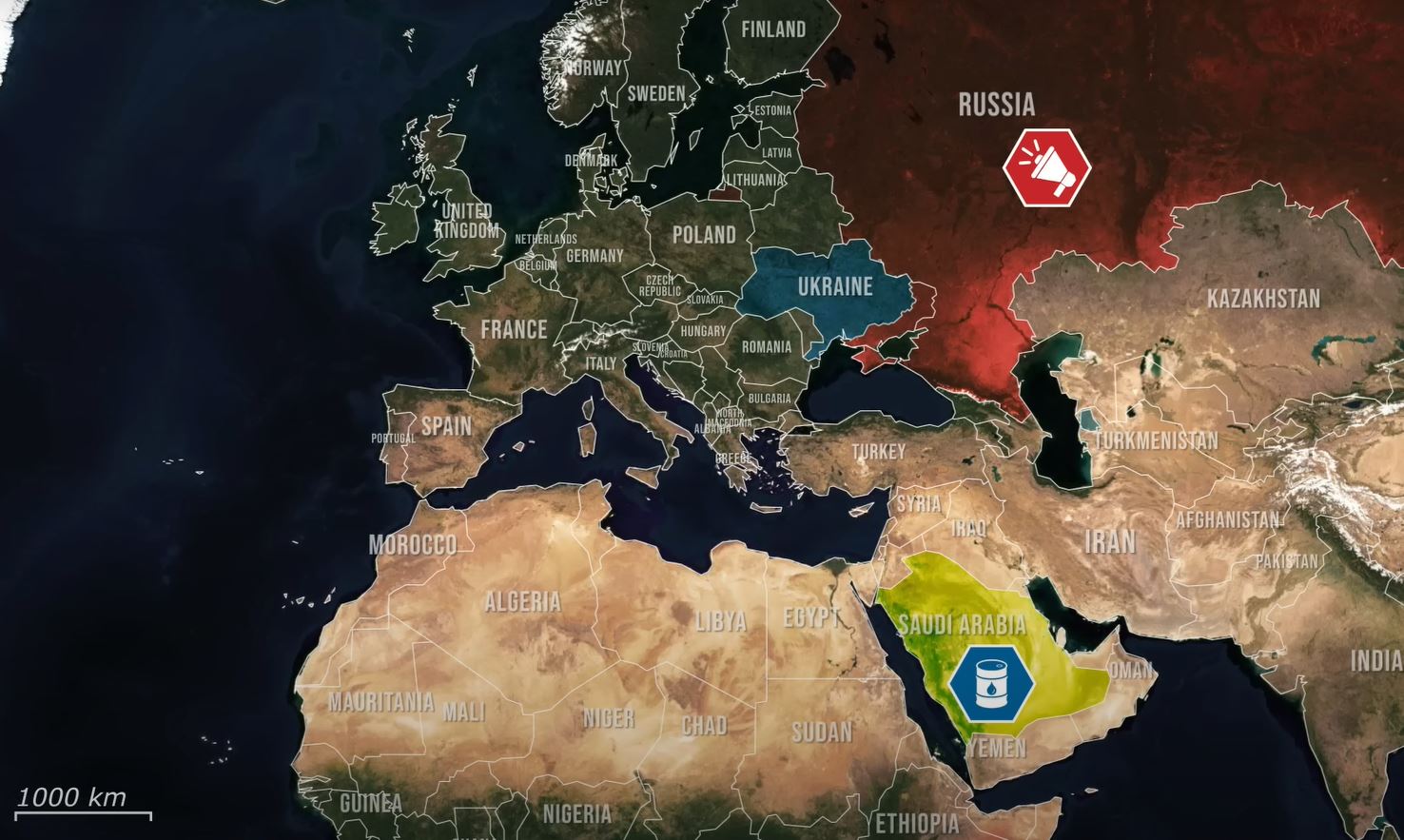Today, there is interesting news from the Middle East.
Here, OPEC has made a decisive move to punish member states violating production quotas by ramping up output and pushing oil prices to new lows. As the global markets react, the shockwaves hit Russia the hardest, with its economy, already strangled by sanctions and inflation, now gasping for air under the weight of collapsing revenues and shrinking influence within the oil cartel.
OPEC+ raises output, sending oil prices tumbling
Recently, OPEC+ announced plans for a significant increase in oil production for July, adding 411,000 barrels per day. This is the third consecutive monthly hike, and the move aims to regain market share, and discipline overproducing members like Russia, Iraq, and Kazakhstan. Despite the risk of oversupply, the group, led by Saudi Arabia, is prioritizing volume over price to reassert its influence in the global oil market, building on its previous decision not to increase prices.
The immediate effect of this decision has been a notable decline in oil prices. Brent Crude, sourced from the North Sea, has fallen to approximately 65 dollars per barrel, while the West Texas Intermediate produced in the United States is trading around 63 dollars, marking the lowest levels since early 2021.  Analysts anticipate that this trend may continue, with forecasts suggesting that Brent Crude could hold the same reduced price for the entire year. Goldman Sachs projects that oil prices might average 60 dollars per barrel this year and potentially dip to 56 dollars in 2026. In more extreme scenarios, where global economic conditions worsen significantly, prices could even fall below 50 dollars per barrel.
Analysts anticipate that this trend may continue, with forecasts suggesting that Brent Crude could hold the same reduced price for the entire year. Goldman Sachs projects that oil prices might average 60 dollars per barrel this year and potentially dip to 56 dollars in 2026. In more extreme scenarios, where global economic conditions worsen significantly, prices could even fall below 50 dollars per barrel.

Russian crude slides below budgeted threshold
For Russia, these developments pose significant challenges. As of early June 2025, the price of Russian Urals crude oil has fallen below 50 dollars per barrel, marking its lowest level since June 2023. Specifically, in April, Urals crude was priced at around 47.50 dollars. This is extremely below the 70-dollar benchmark used in the initial Russian budget planning for the year. It is estimated that each 10-dollar drop in oil prices costs Russia approximately 17 billion dollars annually. The resulting revenue gap of around 40 billion dollars is expected to widen the deficit to 10% of the projected Russian annual budget of approximately 415 billion dollars.

Gulf states challenge Russia in Asia
Moreover, Russia’s position in the Asian oil market is under threat. While Russia has been exporting discounted oil to countries like India and China, with the massive increase in production, other OPEC+ members are also targeting these markets, increasing competition and potentially driving prices even lower, while at the same time offering better quality oil compared to the Russians. This increased competition in Asia could erode Russia’s market share and further impact its oil revenues.
Russia’s influence within OPEC+ declines
Additionally, Russia’s influence within OPEC+ appears to be waning. The recent production increases have been driven primarily by Saudi Arabia, with Russia reportedly unhappy about these hikes. This shift suggests that Gulf states are increasingly dictating policy according to their own interests, potentially sidelining Russia in the decision-making process.
Sanctions, tariffs, and strikes cripple Moscow’s oil prospects
Russia is unlikely to benefit from increased production due to several factors. Tougher sanctions that get enforced more and more vigorously, price caps aimed to cripple the Russian oil revenue, and damaged refining capabilities, courtesy of Ukrainian precision strikes, limit Russia’s ability to capitalize on higher output. Furthermore, the production cost of Urals crude is higher compared to Brent Crude, as well as Brent having higher quality and being easier to refine into gasoline and diesel. There is also constant uncertainty about new sanctions coming soon, including a 500% secondary tariff being actively discussed in the US Senate, which would target countries buying oil and other natural resources from Russia. All this makes Russian oil less competitive in the global market and ruins all plans that have been made for the Russian budget, which is already under enough stress due to the ongoing war efforts in Ukraine.
In our regular frontline report, we pair up with the military blogger Reporting from Ukraine to keep you informed about what is happening on the battlefield in the Russo-Ukrainian war.




